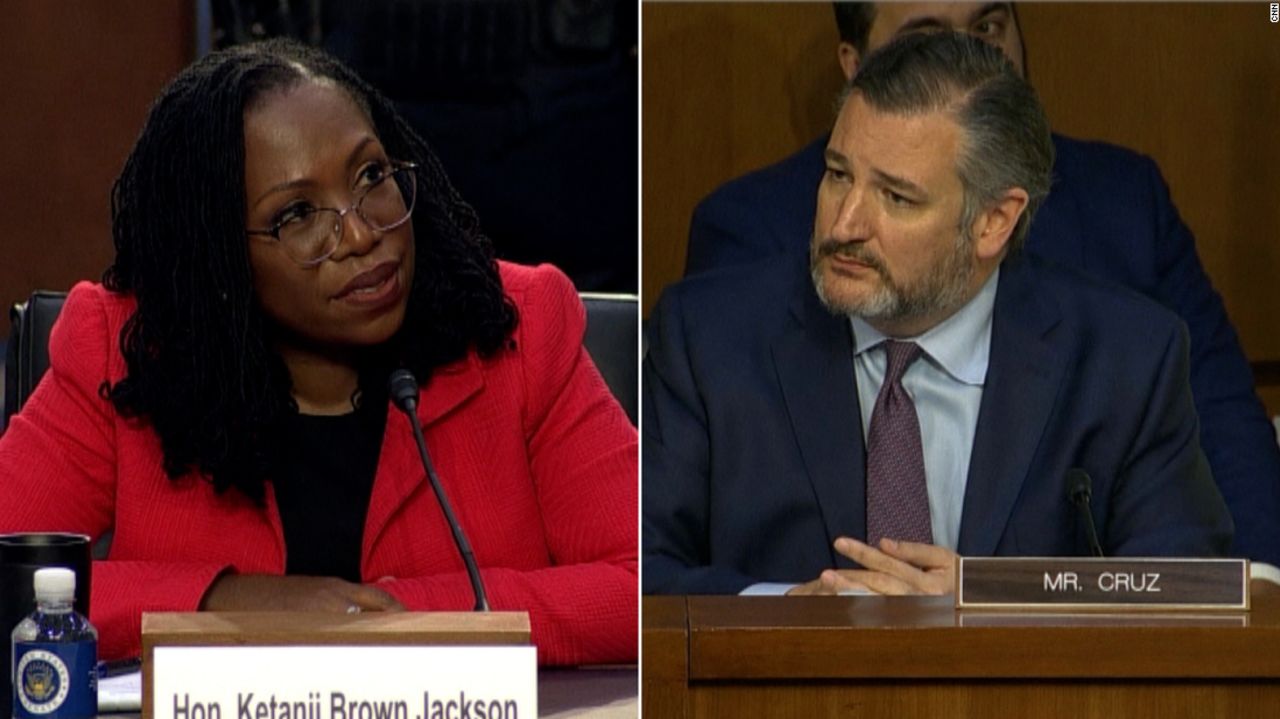Editor’s Note: Julian Zelizer, a CNN political analyst, is a professor of history and public affairs at Princeton University and author of the forthcoming book “The Presidency of Donald J. Trump: A First Historical Assessment.” Follow him on Twitter @julianzelizer. The views expressed in this commentary are his own. View more opinion on CNN.
It was quite a week for the Republican Party. If anyone was still holding out hope that the GOP would shift away from its Trumpian pull, the last few days should serve as a powerful wake-up call.

During the confirmation hearings for Supreme Court nominee Ketanji Brown Jackson, a number of conservative Republican senators who appear to have an eye on 2024 raised the specter of conspiracy theories in an attempt to sidetrack a well-qualified and highly respected nominee.
Sens. Josh Hawley of Missouri and Marsha Blackburn of Tennessee, for example, went after Jackson by trying to paint a misleading picture that she had been particularly lenient toward sex offenders.
While the “soft on crime” line of attack might seem like a predictable extension of a decades-long Republican “law and order” strategy, commentators have pointed out that the senators may have been trying to appeal to those who follow QAnon and believe the conspiracy theory that President Donald Trump is locked in a battle against a group of elites who run a child sex ring.
Others fell back on another Republican bogeyman: critical race theory. Sen. Ted Cruz’s version of “gotcha” was to hold up books that had been assigned or recommended at a private school in Washington where Jackson is a board member, trying to make the case that they covered radical concepts unfit for children.
Throughout the confirmation hearings, Republicans tried to score cheap political points by delving into bizarre lines of argument – all of which revealed how fringe talking points had become mainstream. Top elected officials were espousing claims that in earlier eras would have been considered too far off base to focus on during a televised proceeding.
And then news broke that the January 6 committee had text messages sent by Virginia “Ginni” Thomas, the wife of Supreme Court Justice Clarence Thomas, to Mark Meadows, Trump’s chief of staff at the end of his presidency.
Since New Yorker journalist Jane Mayer first broke the story about the ethical clash between Virginia Thomas’ high-level participation in right-wing organizations and the cases her husband participates in, more troubling details have emerged.
Thomas, who has ties to right-wing activists who have brought forth issues before the very court on which her husband sits, texted Meadows 29 times between the 2020 election and January 2021, urging him to continue the fight to overturn the election results.
“Release the Kraken and save us from the left taking America down,” she wrote on November 19, 2020. In other texts, she made references to Trump’s often-repeated lie that the election was stolen and called Biden’s victory “the greatest Heist of our History.”
“Release the Kraken,” a catchphrase from the 1981 movie “Clash of the Titans,” had been repurposed by conservatives to refer to sprawling claims of voter fraud. Virginia Thomas’ use of this kind of rhetoric is one thing – even more troubling is her involvement in an anti-democratic campaign by the incumbent President and his allies to stifle the decision of the electorate.
The way in which the far right has influenced the mainstream Republican Party has been one of the pivotal stories in American politics in recent years. This radicalization has created a situation in Washington where one party has shifted further from center than the other. Norms of restraint, civility and governance have taken a back seat to raw partisanship. Lawmakers are increasingly performative and eager to throw red meat to their followers without any concern for the consequences. Indeed, January 6 was a product of this mentality, as Republicans repeated Trump’s dangerous lies and those of his allies about a “stolen election.”
The hearings this week were another case in point, showing how even familiar arguments like the appeal to law and order (itself a tool of partisanship from past eras that now seem quaint by comparison) have morphed into a world of extremism once reserved for the far reaches of the internet. Now, the logic seems to be that if you want to run for the Republican presidential nomination, you don’t play to the center but court the conspiracists.
Unless Republican leaders pull back, they will never be able to move in the direction that some more moderate GOP members, such as former Texas Congressman Will Hurd, have championed. In his new book, “American Reboot: An Idealists Guide to Getting Big Things Done,” Hurd urges his fellow party members to shed the conspiracy thinking and attempt to broaden their electoral coalition. The GOP, he writes, “must stop peddling conspiracy theories like those that led to the Capitol insurrection on January 6, 2021.”
While Hurd’s vision would offer the best bet for the Republican Party to strengthen its future and safeguard our democracy, party members continue to move the GOP in a very different direction, as we saw this week. And the closer we get to the 2022 midterms, the more likely it is for prominent Republicans to double down on extremist ideas rather than internal reform. It could be that Hurd is the voice of the future, but right now, that future is far off.


